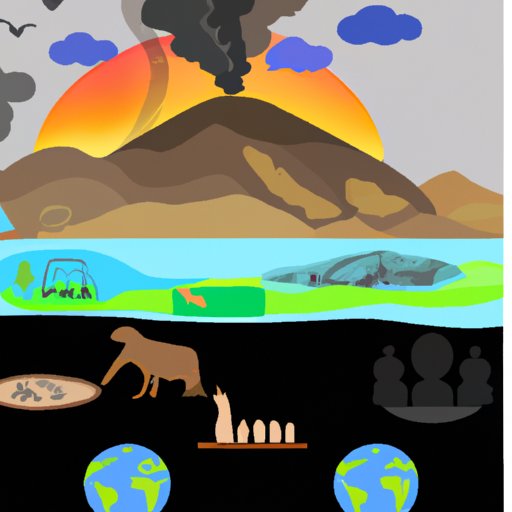Introduction: What is the Tragedy of the Commons in Environmental Science?
The tragedy of the commons is an important concept in environmental science that explains why individuals or groups often act in ways that are detrimental to the environment. The term was first coined by Garrett Hardin in 1968, and it refers to a situation where individuals or groups fail to take responsibility for a shared resource and instead act in their own self-interest, leading to its depletion or destruction. This problem arises when there is no regulation or enforcement of the use of the shared resource. In this article, we will explore the causes, impacts and solutions for the tragedy of the commons in environmental science.

Exploring the Causes of Tragedy of the Commons in Environmental Science
The tragedy of the commons in environmental science is caused by a variety of factors. One of the most significant is overpopulation and over-consumption. As the global population continues to grow, the demand for resources increases. This leads to more intense exploitation of natural resources, which can lead to their degradation and destruction. Additionally, many communities lack access to resources or the ability to manage them sustainably, leading to over-utilization. For example, according to a report from the United Nations Environment Programme, “overfishing is a common problem around the world, as fish stocks are being depleted at an alarming rate due to unsustainable fishing practices.”
Another major cause of the tragedy of the commons in environmental science is the lack of regulation and enforcement. This can be seen in the unregulated mining and logging activities that are taking place around the world. Without proper regulations and enforcement, these activities can quickly lead to the destruction of habitats, causing a decline in biodiversity and other negative environmental effects.

Understanding the Impact of the Tragedy of the Commons on the Environment
The tragedy of the commons has a wide range of impacts on the environment. One of the most significant is the degradation of natural resources. This can lead to water pollution, soil erosion, air pollution and other environmental problems. Additionally, the over-utilization of resources can lead to a loss of biodiversity, as species become endangered or extinct due to habitat destruction or over-harvesting. Finally, the tragedy of the commons can contribute to climate change, as the destruction of habitats and increased pollution can lead to increased carbon dioxide levels in the atmosphere.
Examining Solutions for the Tragedy of the Commons in Environmental Science
Solutions for the tragedy of the commons in environmental science must address the underlying causes of the problem. Education and awareness are key components of any solution, as they can help people understand the importance of protecting the environment and the consequences of over-utilizing resources. Sustainable development is also essential, as it focuses on meeting the needs of current generations without compromising the ability of future generations to meet their own needs. Finally, private property rights can provide an incentive for people to protect the environment, as they are more likely to protect resources if they have a vested interest in them.
Investigating How the Tragedy of the Commons Can Be Prevented
In order to prevent the tragedy of the commons in environmental science, governments must take action. One way to do this is through proper regulation and enforcement of resource management. This includes setting limits on the extraction and consumption of resources, as well as enforcing those limits. Additionally, governments can create economic incentives for people to use resources responsibly. For example, subsidies can be used to encourage people to adopt renewable energy sources, or taxes can be imposed on activities that are damaging to the environment.

Analyzing the Effects of the Tragedy of the Commons on Wildlife and Human Health
The tragedy of the commons in environmental science has far-reaching effects on wildlife and human health. The destruction of habitats can lead to a decrease in biodiversity, as species become endangered or extinct due to habitat destruction or over-harvesting. Additionally, pollution from over-utilization of resources can lead to contaminated water, air and soil, which can have serious health implications for both humans and animals. Finally, the destruction of habitats can increase the spread of disease, as mosquitoes and other disease-carrying organisms are able to thrive in disturbed areas.
Conclusion
The tragedy of the commons in environmental science is a serious problem that needs to be addressed. Overpopulation and over-consumption are leading to the destruction of natural resources and a loss of biodiversity, while the lack of regulation and enforcement is exacerbating the problem. Solutions to this problem include education and awareness, sustainable development and private property rights, as well as proper resource management and economic incentives. Finally, the tragedy of the commons can have serious effects on wildlife and human health, including the destruction of habitats, pollution and an increase in disease. It is essential that we take action to prevent the tragedy of the commons and protect our environment for future generations.
(Note: Is this article not meeting your expectations? Do you have knowledge or insights to share? Unlock new opportunities and expand your reach by joining our authors team. Click Registration to join us and share your expertise with our readers.)
